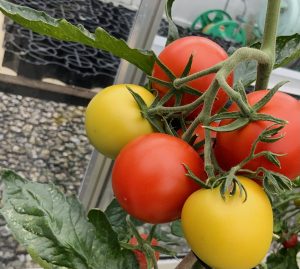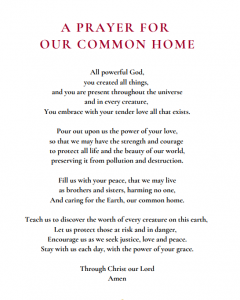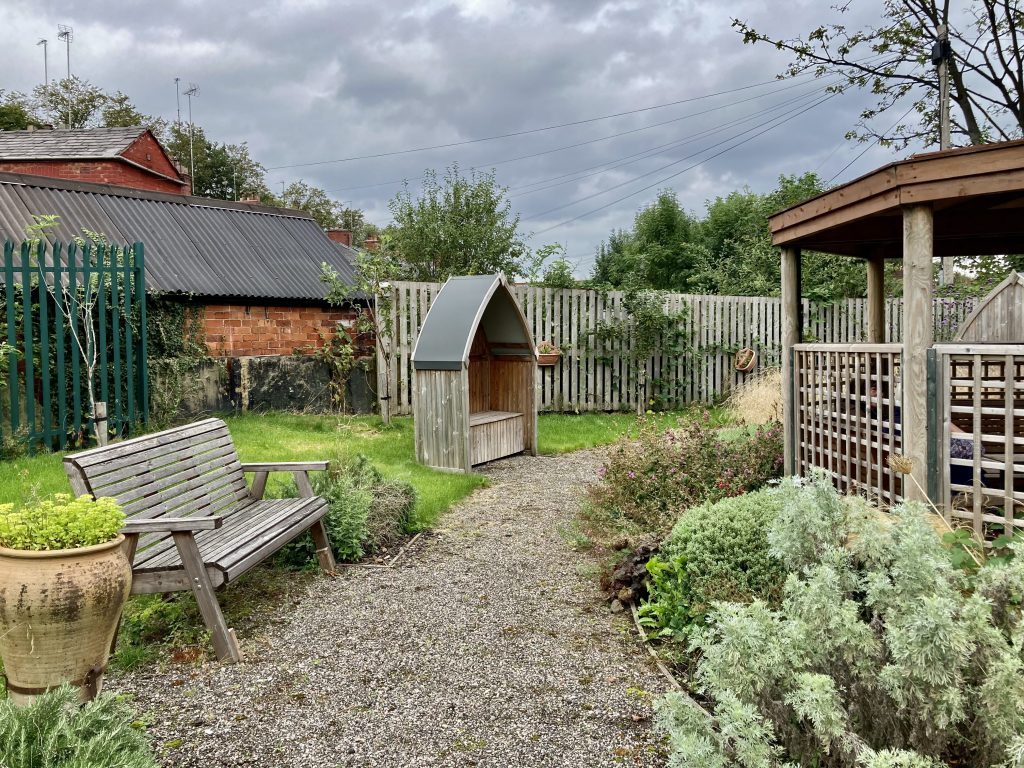
Taking action to care for creation
Wednesday 22nd September 2021By Dr Emma Gardner, Head of Environment for the Diocese of Salford
The scale of the environment crisis can at times feel overwhelming but there are simple, achievable steps we can take to drive change and work to create a better world. In this action, there is hope and purpose. We are each blessed with the opportunity to make a difference and to care for creation.
Read the steps below to discover some easy-to-implement, low-cost ways to take climate action at home:
- Keep up to date
It is important to stay up to date with recent news and learning on the environment, which could help you to focus your energy, frame your thinking and actions, and share your learning with others. Fortunately, there is a lot of information freely and easily available, from environmental heroes such as David Attenborough, to key charities such as the Laudato Si’ Movement and CAFOD, and local groups such as Greater Manchester Combined Authority Environment Team or your local Wildlife Trust.
A good place to start is to calculate your carbon footprint, which measures the total greenhouse gas emissions caused by your activities, and also your ecological footprint, which measures how fast resources are consumed and waste generated compared to how fast nature can absorb your waste and generate new resources.
- Use your voice
 Your voice matters and does make a difference. It can help others on their journey and in their understanding on the environment crisis, it can give hope to those who do not know what to do and can put politicians under pressure to make the changes we need to see. Talk to your priest, your family, friends, teachers, your MP, and neighbours, and perhaps set up an eco-group. You can also use your voice to contact the brands you buy from and ask them to tell you how their products are sourced and how are they reducing their impact on the environment. Tell them how they conduct their business matters to you and how you spend your money. Speak up, speak to everyone, and make your voice heard.
Your voice matters and does make a difference. It can help others on their journey and in their understanding on the environment crisis, it can give hope to those who do not know what to do and can put politicians under pressure to make the changes we need to see. Talk to your priest, your family, friends, teachers, your MP, and neighbours, and perhaps set up an eco-group. You can also use your voice to contact the brands you buy from and ask them to tell you how their products are sourced and how are they reducing their impact on the environment. Tell them how they conduct their business matters to you and how you spend your money. Speak up, speak to everyone, and make your voice heard.
- Reduce
Every product we buy, everything we do impacts on the environment and people through the resources used or wastes produced. Think about this every time you turn on the shower, turn on a light, take a trip, turn on the heating, and more. Find ways to reduce any negative impact. The Energy Saving Trust has some tips to reduce energy and Waterwise has tips to reduce water use.
The amount of ‘things’ we consume is accelerating the environment crisis. Start by asking yourself ‘do I really need this?’, or could you reuse, repair, or buy second hand? If you do need something, be informed in your choice and look for products, items and services that are environmentally friendly or are ethically-sourced where possible. This also includes the services you purchase and where you put your money. What you purchase is more than an economic choice but an environmental and social choice too.
- What you eat
 The way we produce and consume food contributes to the environment crisis, which in turns impacts the food system. Understanding where your food comes from will help to inform the choices you make. You can reduce your meat intake (especially beef and lamb), eat seasonally, eat local produce, choose produce that has been farmed sustainably, reduce food waste, learn how to preserve or freeze different foods, avoid food containing palm oil or palm fat, try plant-based meals or Meat Free Mondays and cook with fresh ingredients. Don’t forget that processed food includes many non-edible properties such as packaging and transportation that have additional impacts to take into consideration. Take a bite out of climate change has some great resources.
The way we produce and consume food contributes to the environment crisis, which in turns impacts the food system. Understanding where your food comes from will help to inform the choices you make. You can reduce your meat intake (especially beef and lamb), eat seasonally, eat local produce, choose produce that has been farmed sustainably, reduce food waste, learn how to preserve or freeze different foods, avoid food containing palm oil or palm fat, try plant-based meals or Meat Free Mondays and cook with fresh ingredients. Don’t forget that processed food includes many non-edible properties such as packaging and transportation that have additional impacts to take into consideration. Take a bite out of climate change has some great resources.
- Make space, make time
Make space for God, stop, breathe, and pray. Ask for help and guidance on what steps to take to care for creation. Try this exercise:
- Place yourself in the presence of God, this could be outside in nature or somewhere inside. Wherever you choose, make sure you can relax and not be disturbed. Get yourself comfortable, take a deep breath and start by thanking God for all creation.
- Ask for the grace to see creation through God’s eyes, to see how everything is interconnected, ask to hear the cry of the earth and the cry of the poor.
- Ask for the grace to understand how the way you live your life impacts on all creation, this includes our brothers and sisters working in the supply chains and in communities across the world.
- Ask for the grace of conversion towards caring for creation so that you can make courageous choices for a simple and environmentally sustainable lifestyle.
- Finish with a prayer, perhaps the diocesan Prayer for our Common Home

Also, make space for nature; for growing your own food and for making a place for wildlife in your garden. Make sure you have time in your day to be out in nature by walking or cycling and to connect with other people, communities, and organisations working to care for creation.
- Be kind to yourself
Do what you can and do not be afraid of making mistakes, ask others when you are unsure. Find solutions that are fun such as building a bug hotel, discovering new plant-based recipes, and learning how to fix things rather than throwing them away. What is important is that you are doing something.
At times things can feel overwhelming. We have permanently altered the planet and we know that the environment crisis has a very “human face”, with the poor and most vulnerable disproportionately affected, those contributing the least suffering the most. But there is still time to act. We can imagine a better world. What we do today, our actions and our decisions matter. Actions to build a better world one step at a time.
We would love to hear about the actions you are taking.
Tagged | Environment | Laudato Si Centre




